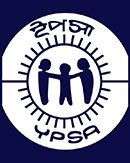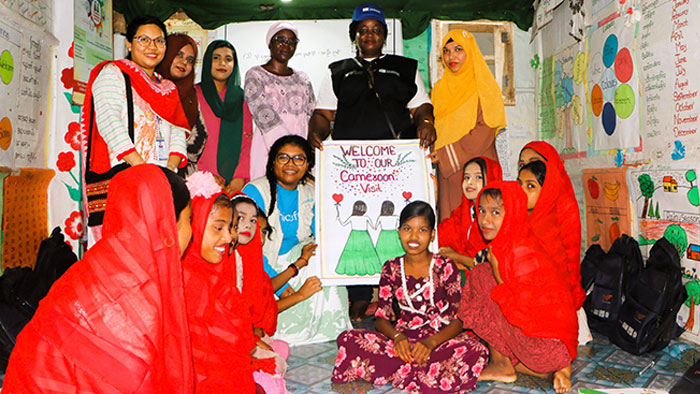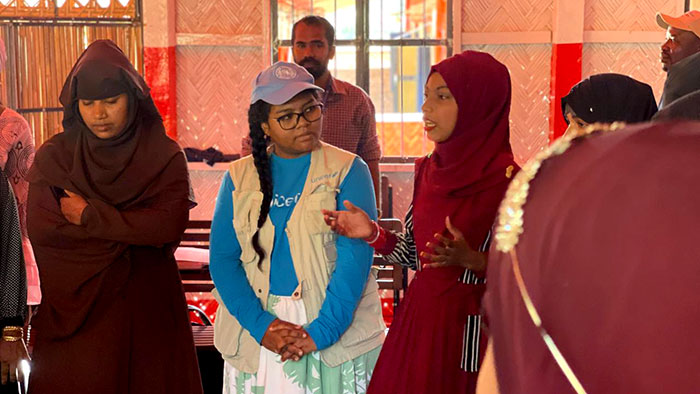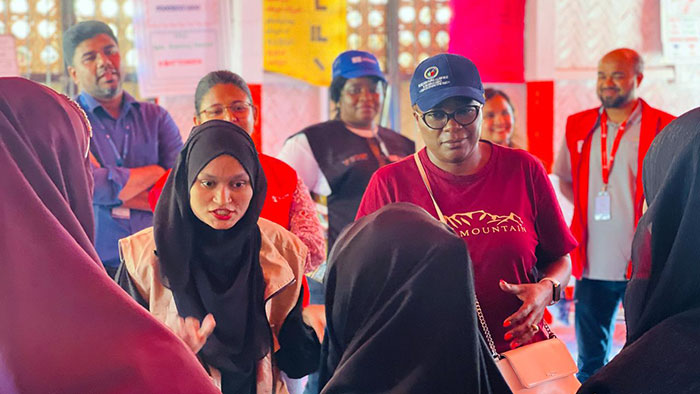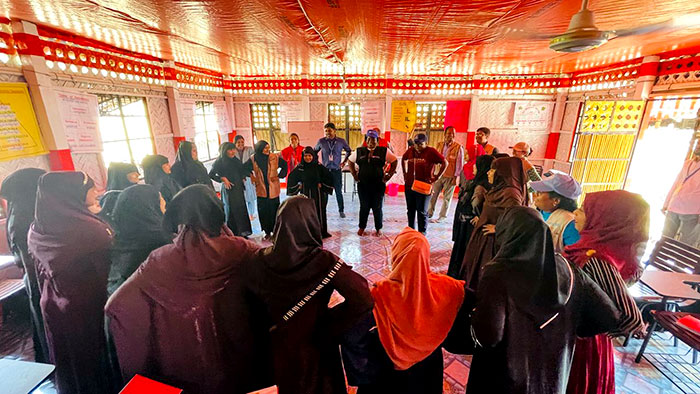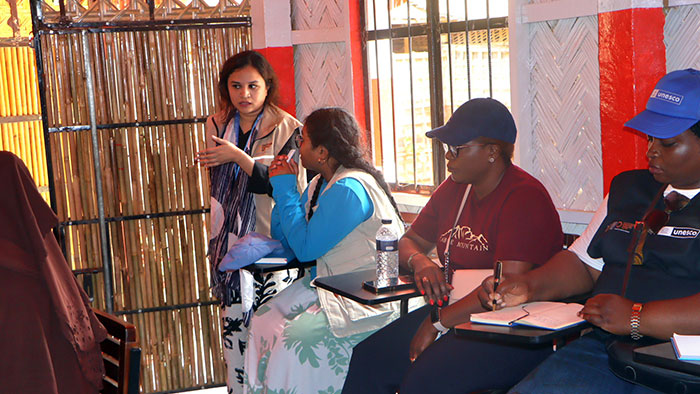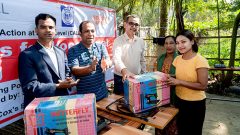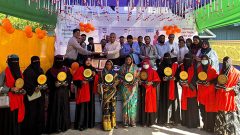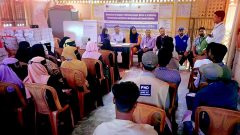On April 8, 2025, A delegation comprising 1 UNICEF representative, 2 personnel from the Cameroon Ministry of Education, 1 UNESCO representative, and 1 delegate from Plan International Cameroon and from the Education Sector representative visited at the Rohingya Camp 13 to observe the ongoing activities of the YPSA-implemented ECW (Education Cannot Wait) project led by Save the Children consortium.
The visit focused on inclusive alternative learning for out-of-school adolescent Rohingya girls (Forcibly Displaced Myanmar Citizens) whose ages fall outside the regular education system. A key objective was to support the development of future female teachers from the Rohingya community, addressing the shortage of qualified female educators within the camps.
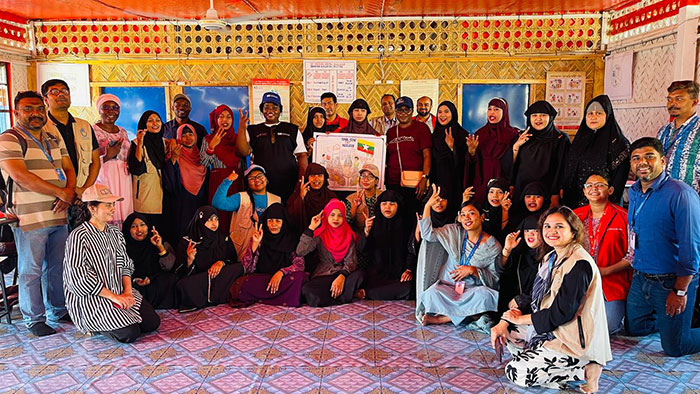
During their time in the camp, the team focused on observing the following key activities:
- Teach to Transform (T2T) Activities: The visitors observed ongoing T2T sessions and engaged with the trainees. The Cameroon team shared insights into their education system and showed keen interest in understanding local teaching methodologies and the training’s impact. The T2T trainees also demonstrated their traditional teaching methods used in the camp context.
- Community-Based Learning Facilities (CBLF): The team visited CBLFs, interacting with learners and facilitators. Discussions centered on the teaching system, learner participation, the learning environment, and innovative practices.
A particularly enriching aspect of the visit was the vibrant cross-cultural and professional exchange that unfolded. The Cameroon team provided a demonstration of teaching methodologies utilized in their country, highlighting techniques applicable in similar challenging environments. Responding in kind, the T2T trainees of the ECW project presented their own traditional teaching methods, creating a dynamic atmosphere of mutual learning and the sharing of valuable ideas.
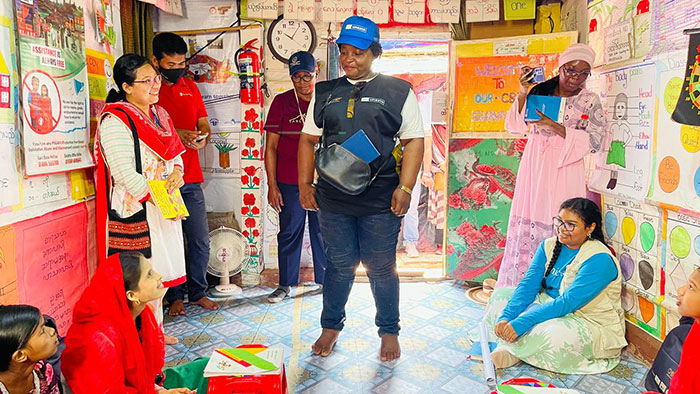
The visiting team expressed their appreciation for YPSA’s effective implementation of the ECW project in a challenging humanitarian setting. They acknowledged the creativity and dedication of the trainees and facilitators and commended the community-led approach to education.
In conclusion, the visit facilitated mutual learning and underscored the value of cross-contextual knowledge sharing in education. The presence of international partners and sector representatives not only motivated the field teams but also reinforced the collaborative spirit of humanitarian education initiatives within the ECW consortium.
